|
|
|
|
Nau mai haere mai - welcome to your newsletter.
Four days on from Saturday’s election and the scale and significance of the result is still sinking in. As Jack Vowles explains, unless special votes change the overall outcome on the night, the 2020 election will have seen the greatest net vote shift between parties in a century — more even than the first Labour landslide in 1935.
While some have argued that the single-party majority this gives Jacinda Ardern’s Labour Party is not what MMP was designed to achieve, Richard Shaw argues quite the opposite. In terms of reflecting the popular will and delivering a diverse, representative parliament, this election scores two ticks for proportional representation.
What Labour chooses to do with this extraordinary mandate remains to be seen. But, as David Hall writes, the party will first have to examine its own political soul and decide what it really stands for.
Meanwhile, the World Health Organization has come in for its share of criticism for its handling of the COVID-19 pandemic. Sir Peter Gluckman, Sir Jim McLay and Alexander Gillespie argue the WHO’s organisational structure to deal with infectious diseases is out of date, and they suggest a new, independent protocol that would deliver information about emergent infectious diseases faster and in a way that is verifiable and not politicised.
There’s more here and on our homepage. Many thanks for reading and your ongoing support for our work. Ngā mihi maioha ki a koutou katoa.
|
Veronika Meduna
New Zealand Editor: Science, Health + Environment
|

|
|
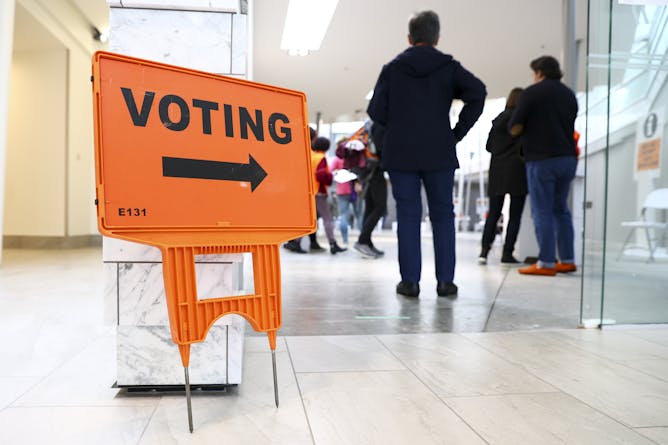
GettyImages
Jack Vowles, Te Herenga Waka — Victoria University of Wellington
If the pattern on election night holds, 2020 will be the most dramatic election in 100 years in terms of votes shifting between major parties.
|

Labour Party supporters in Auckland cheer the results on election night.
AAP
Richard Shaw, Massey University
The people have spoken, and MMP has delivered the right result — even if it means Labour governs alone.
|
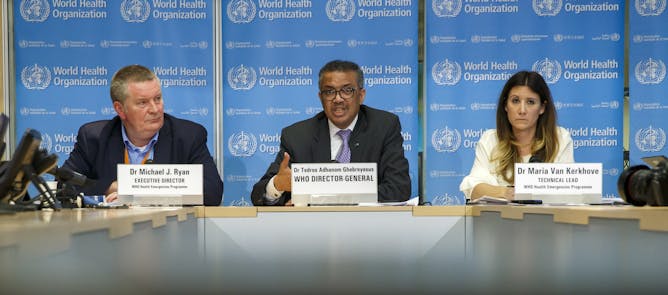
EPA/Salvatore di Nolfi
Peter Gluckman; Alexander Gillespie, University of Waikato
The WHO has been criticised for being slow to recognise the scale of the COVID-9 pandemic. We suggest a new protocol on infectious diseases to help with faster data collection and more open sharing.
|

New Zealand Prime Minister Jacinda Ardern promising to accelerate Labour’s COVID-19 recovery plan after winning re-election in a landslide.
Phil Walter/Getty Images
David Hall, Auckland University of Technology
In politics, what lifts you up can drag you down. To avoid that, Jacinda Ardern's Labour government will have to examine its political soul.
|
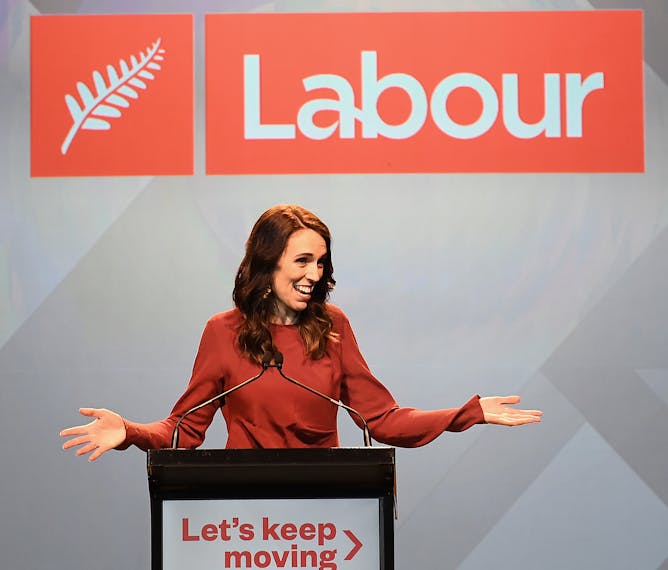
Hannah Peters/Getty Images
Liz Minchin, The Conversation; Michael Lund, The Conversation; Wes Mountain, The Conversation; Veronika Meduna, The Conversation; Finlay Macdonald, The Conversation
Labour's landslide election win means it could govern alone, without support from any of the other parties.
|
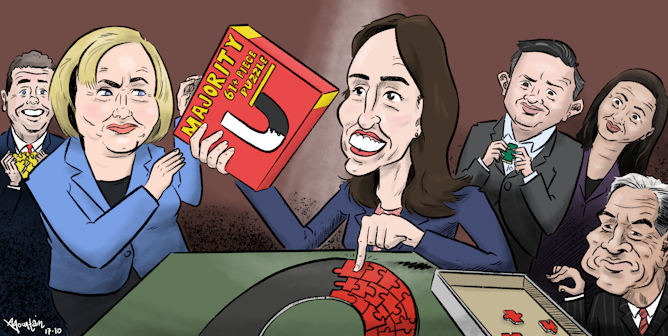
Wes Mountain/The Conversation
Richard Shaw, Massey University; Bronwyn Hayward, University of Canterbury; Jack Vowles, Te Herenga Waka — Victoria University of Wellington; Jennifer Curtin; Lindsey Te Ata o Tu MacDonald, University of Canterbury
Jacinda Ardern and Labour are returned to power in a landslide, making New Zealand political history in the process.
|
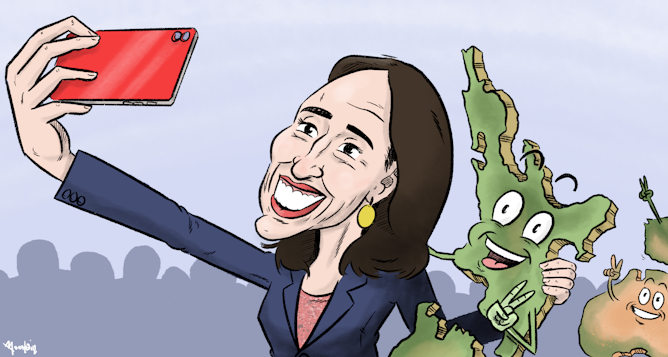
Wes Mountain/The Conversation
Richard Shaw, Massey University
The politics of reassurance have made her one of the most popular prime ministers in NZ history. Can Jacinda Ardern turn that into meaningful change?
|
From our international editions
|
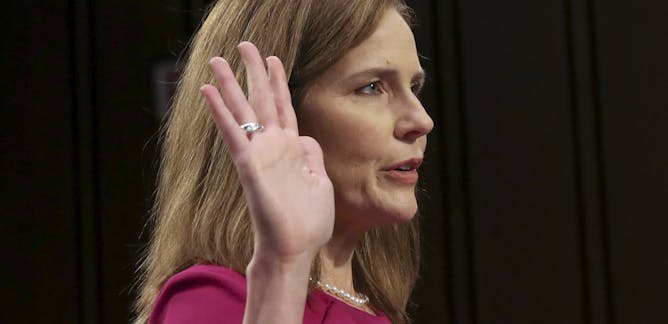
Joanne M. Pierce, College of the Holy Cross
Taking oath is an important tradition before assuming charge of a public office. It entails a commitment to the future. What is the history of oath-taking?
| |
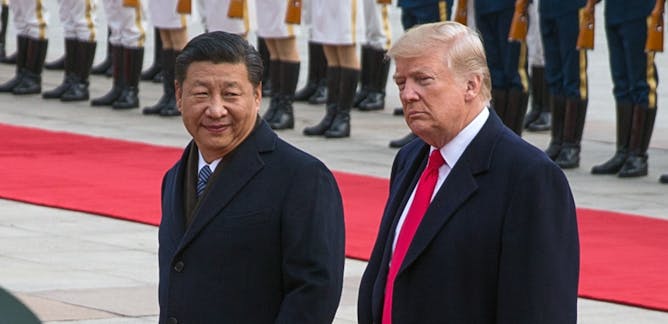
Hui Feng, Griffith University
What started as Trump’s petty complaints on trade with China eventually escalated into what many call 'a new Cold War'.
|

Mary-Louise McLaws, UNSW
A previous version of Melbourne's COVID roadmap flagged an exclusive bubble between two households. The new plan allows residents to have two adult visitors per day, which is far riskier.
| |
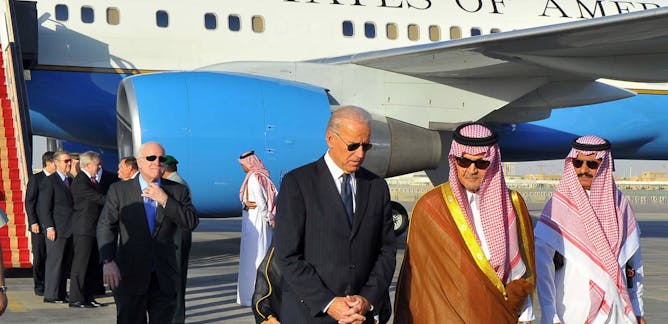
Muqtedar Khan, University of Delaware
Biden and Trump are like night and day on foreign policy, and American global engagement would change radically under a Biden presidency. But actual Mideast policy might show only cosmetic changes.
|
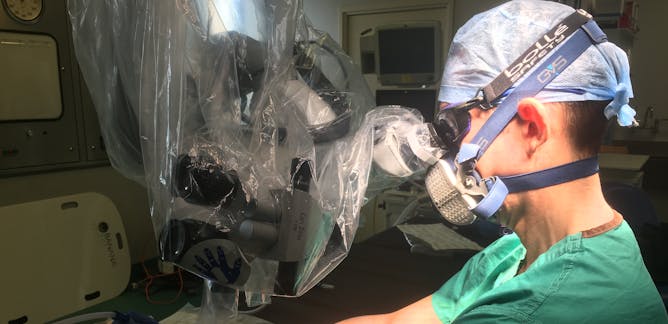
Douglas Hartley, University of Nottingham
Before COVID-19, if you told me that I’d need to construct a tent in which to operate this year, whilst wearing spoggles and a respirator mask, I would not have believed you.
| |

Christopher Newman, Northumbria University, Newcastle
Some nations are concerned the Artemis Accords represent a US power grab.
|
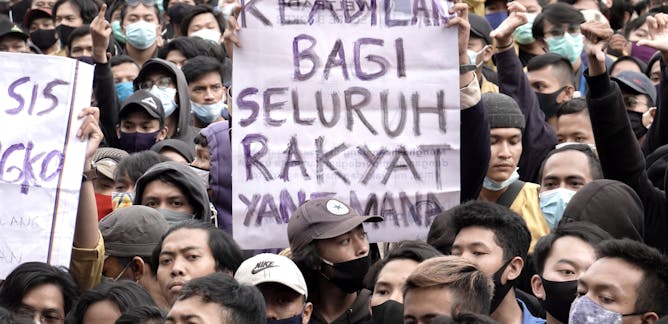
Aulia Nastiti, Northwestern University
The Job Creation Bill is alleged to enrich only the elites and harm the working class.
| |
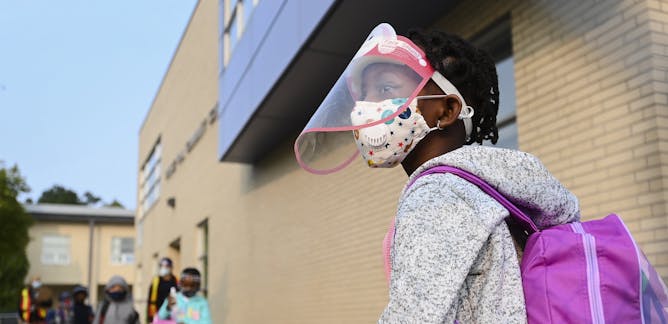
Neil Price, University of Toronto; Emis Akbari, University of Toronto
The COVID-19 pandemic risks making Canada's already woeful record on child welfare worse. To safeguard a future for our children, governments must prioritize their care.
|
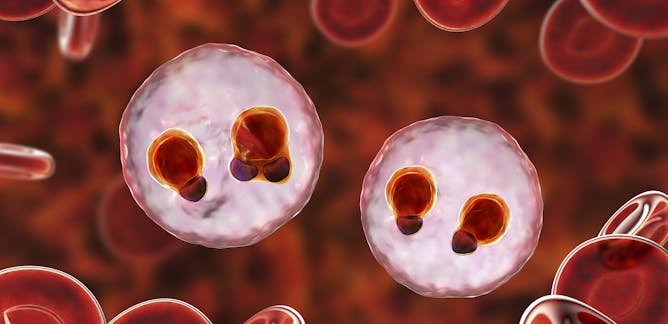
Segun Isaac Oyedeji, Federal University, Oye Ekiti
Genetic diversity of a parasite population might help us watch for drug-resistant parasites.
| |
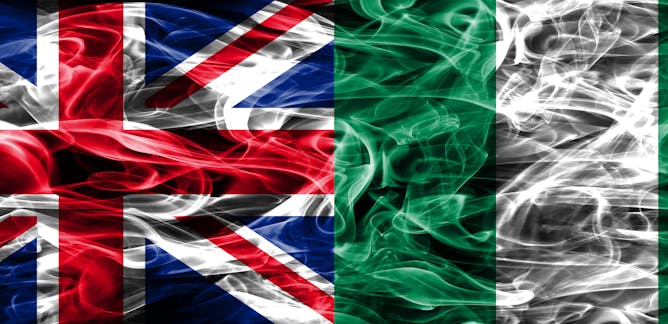
Benjamin Maiangwa, University of Manitoba
The fact that the colonial system was essentially a commercial expedition meant that the outcome was the creation of corporate entities rather than nation states.
|
|
|
| |
| |
| |
| |
| |
| |
|
|
|
|
|
|
|